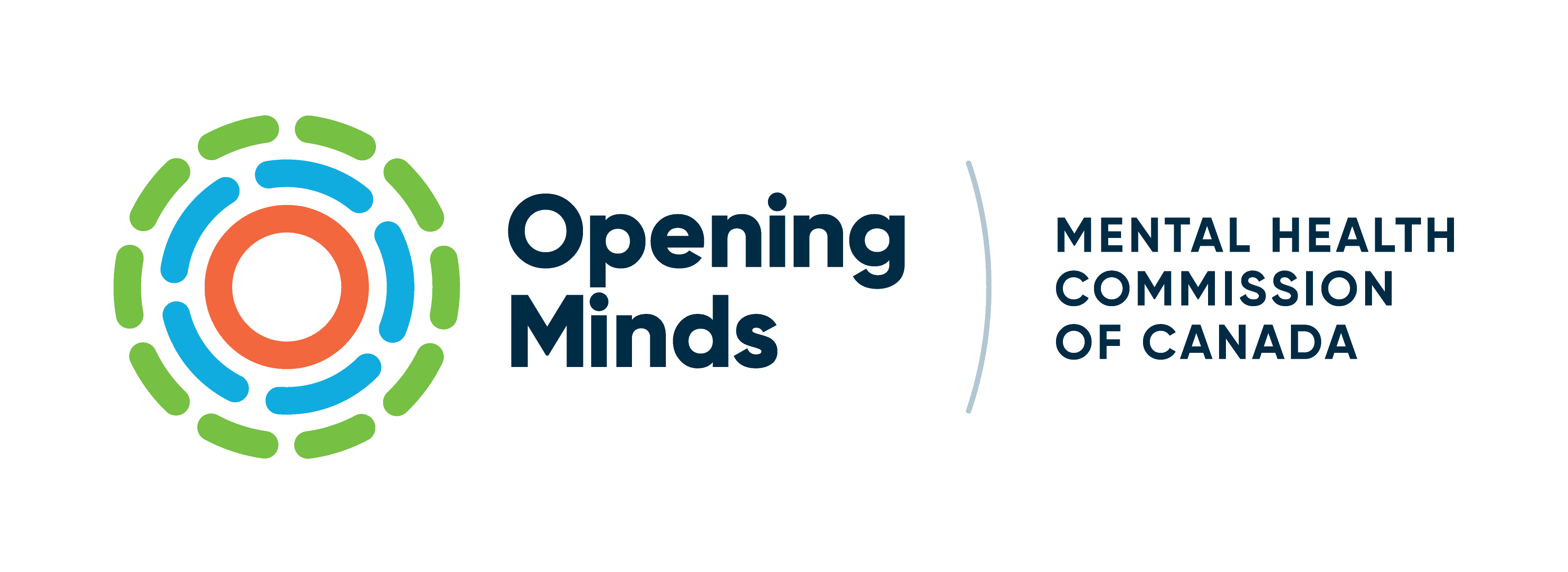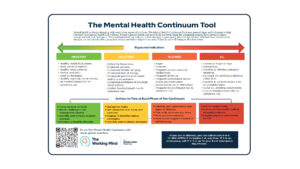A lot of the time when I’m delivering mental health training, people tend to forget or overlook their mental health because they think it doesn’t affect them.
Similar to physical health, it is very important to remember that we all have mental health. A lot of the time when I’m delivering mental health training, people tend to forget or overlook their mental health because they think it doesn’t affect them. A distinction we need to remember is we all have mental health but not everyone has mental health problems.
Over these past few months, I believe it’s safe to say that our mental health has been affected by various unexpected stressors that we’ve all faced caused by the COVID-19 pandemic. Today I want to write about the importance of checking in on yourself.
In our mental health training program The Working Mind, we teach participants about the mental health continuum. The continuum shows us that it’s normal for our mental health to change and gives us tips on how to work towards moving our mental health back to the healthy (green) column.
Let’s think about our mental health as a thermometer. When our “mental health temperature” is stable or 37 C, we’re seen as being in the “green” column. When we’re in the green, we’re able to deal with the stressors that life throws at us. Lately, we’ve been asked to deal with different challenges we may not have been prepared for, such as being an essential worker, physical distancing, homeschooling or financial difficulties. Facing all of this can lead us into having a low-grade fever or being in the “yellow”. When in the yellow, we may find we are more irritable, have less motivation or we may not be sleeping well. This is a normal reaction to an abnormal event, the pandemic being the event. We have not lived through a pandemic before, so it’s important to remember to be kind to yourself.
As our mental health declines, or our mental health temperatures rises, we may find ourselves moving into the “orange” column. This is where we may see an increase of symptoms that were present when we were in the yellow column. At this point, it is very important to start using our coping skills and self-care tips to try to move back towards the yellow and eventually the green categories. The longer we stay in the orange, the more at risk we are to move into the “red” column which may lead to a serious mental health problem or what we could consider a mental health temperature of 41 C. When in the red, it is recommended that you seek professional help in order to start working your way back along the continuum.
Tending to our mental health is just as important as caring for our physical health. Over the past few months, I know my mental health has fluctuated between green-yellow and even yellow-orange a time or two. The important thing to remember is that we all have the ability to get back to the green by practicing self-care, using our supports and coping skills, and most importantly, being kind to ourselves. We’re doing the best we can one day or even one hour at a time.
Talk soon,
Denise


